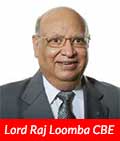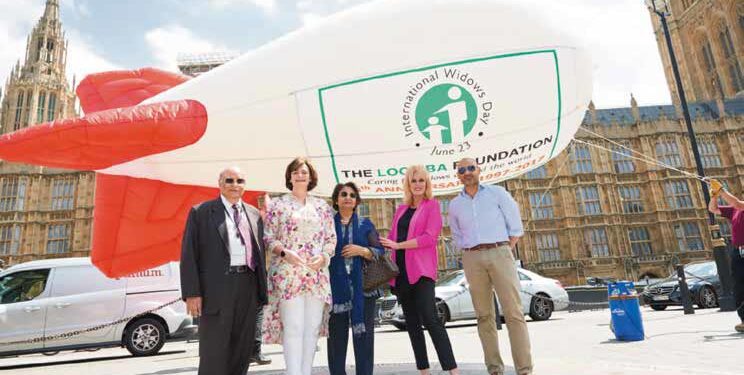 Lord Raj Loomba: My Lords, I declare my interest as chair and founder trustee of the Loomba Foundation.
Lord Raj Loomba: My Lords, I declare my interest as chair and founder trustee of the Loomba Foundation.
I was only 10 years old when my father died in India in 1954. It was a tragedy for my mother and my siblings, but for me, the shock of what happened next has remained with me all of my life. On that same day, before my father had been cremated, my mother had to remove all her jewellery and bindi—the sign of a married woman in India—and to wear only white clothes to signify her for ever as a widow. I had always known my mother as a happy and fulfilled person. Now she was instantly transformed into a troubled widow, shunned and facing imposed obstacles.
My mother was determined to make sure that we were not harmed by the tragedy and she devoted all her resources to ensuring that all of us— boys and girls—received the best education possible. As I came to realise years later, we were the lucky ones.
Tens of millions of widows from poor backgrounds face penury, with customs and traditions making it difficult for them to support themselves or to pay for their children’s education.
Many fall into destitution, with very little opportunity for their children to escape a similar fate. So, in 1997, after my mother passed away, my wife and I established a foundation in my mother’s memory to help poor widows and their families.
Our first target was to fund education for children of poor widows throughout India, and we built a programme that has transformed the lives of more than 100,000 people. We soon came to realise, however, that this is a global issue, with widows facing serious abuse and discrimination in countries all around the world. There was little or no prospect of this changing. The problems of widows are invisible— not seen or acknowledged anywhere…
That is why on 26 May 2005, at an event here in the House of Lords, the Loomba Foundation launched International Widows Day.
After five years of tireless campaigning together with Loomba Foundation president Cherie Blair, 23 June was unanimously adopted as International Widows Day by the UN General Assembly, the day my dear mother became a widow.
Over the last 14 years, UN member states have worked to tackle the issue, but the problem still affects more than 1 billion people, with more than 100 million widows and their dependants living below the poverty line…
I have three simple questions for the Minister. First, will he support a focused study of changes in legislation and attitudes in UN member countries over the last two decades to inform effective policy development? Secondly, will he support an international campaign of education and awareness based on the evidence? Finally, will he consider scheduling a debate on International Widows Day next year from the Dispatch Box?
Lord Bhikhu Parekh (Labour):
My Lords, I thank the noble Lord, Lord Loomba, for initiating this debate. I thought I would raise two issues with the Minister and make some other points. We have been talking about widows for a long time in this House. Those of us who come from the Indian subcontinent vividly recollect what it means to be a widow and the kind of suffering women have to go through, so this is not a new subject. It is a very painful subject, and we have raised it again and again. I want to ask two questions which have not been asked before.
First, who is a widow? I am told that a widow is somebody whose husband has died. What is a husband? The manner of thinking and talking about marriage and social relations is undergoing fast changes, partly because of the impact of feminism and partly because of radical ideas, so that the old categories of married/not married/widowed/divorced make less and less sense.
For example, if two people have been cohabiting and one of them dies, is the cohabitee a widow? In same-sex marriages, if two men are married to each other and one of them dies, is the other man a widow? If he walked into my office and said “Professor, I am a widow”, I would be horrified to hear that. So the first question that this House, with its distinguished concentration of intelligence and wisdom, will want to address is who is a widow and whose future and whose past are we talking about.
My second question is far more important. A widow is a cultural construction. To be a widow in India is a very different experience from being a widow in the United States…The problem requires a revolutionary change in the culture. It is a cultural problem, not an economic one…
















